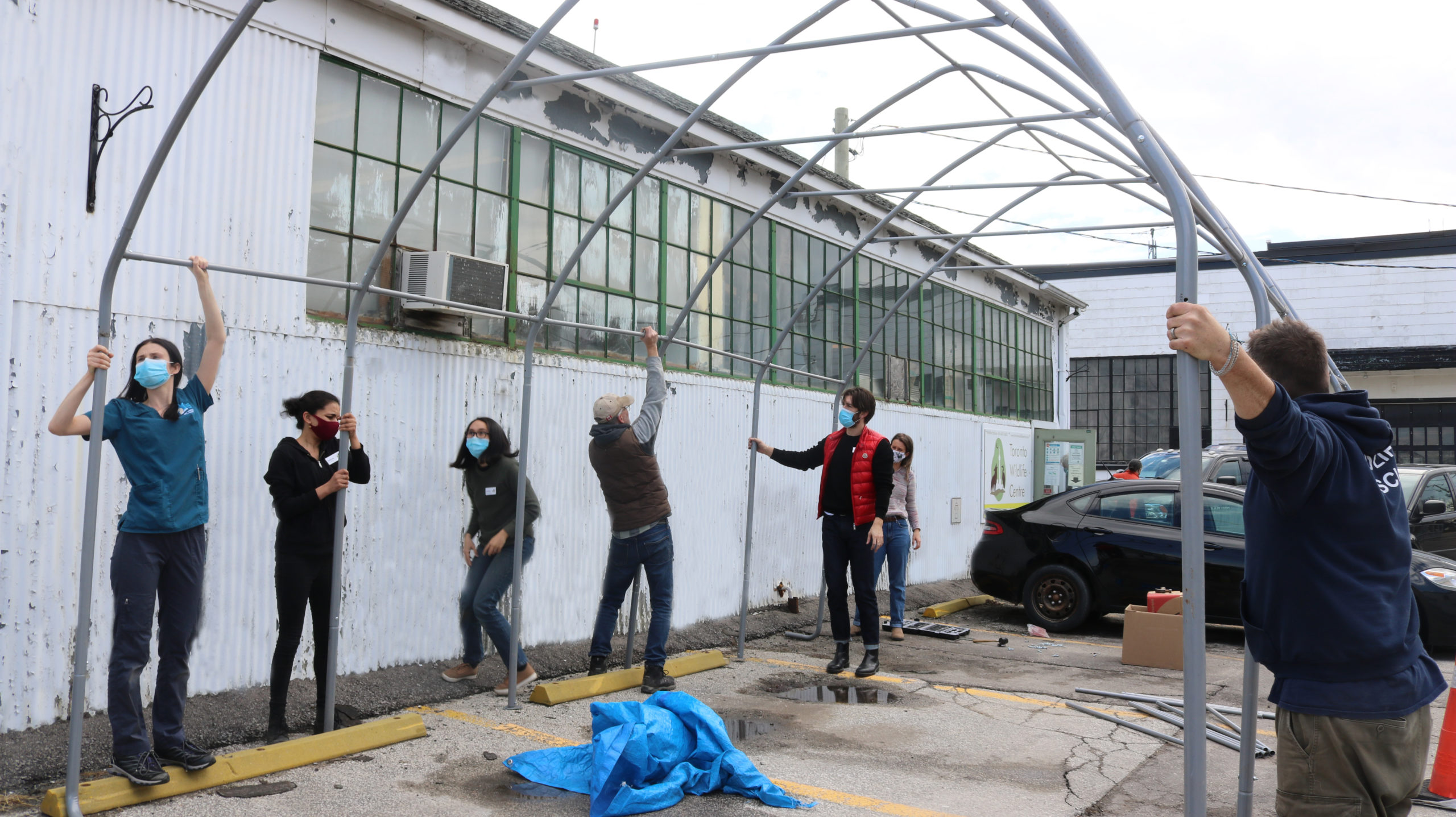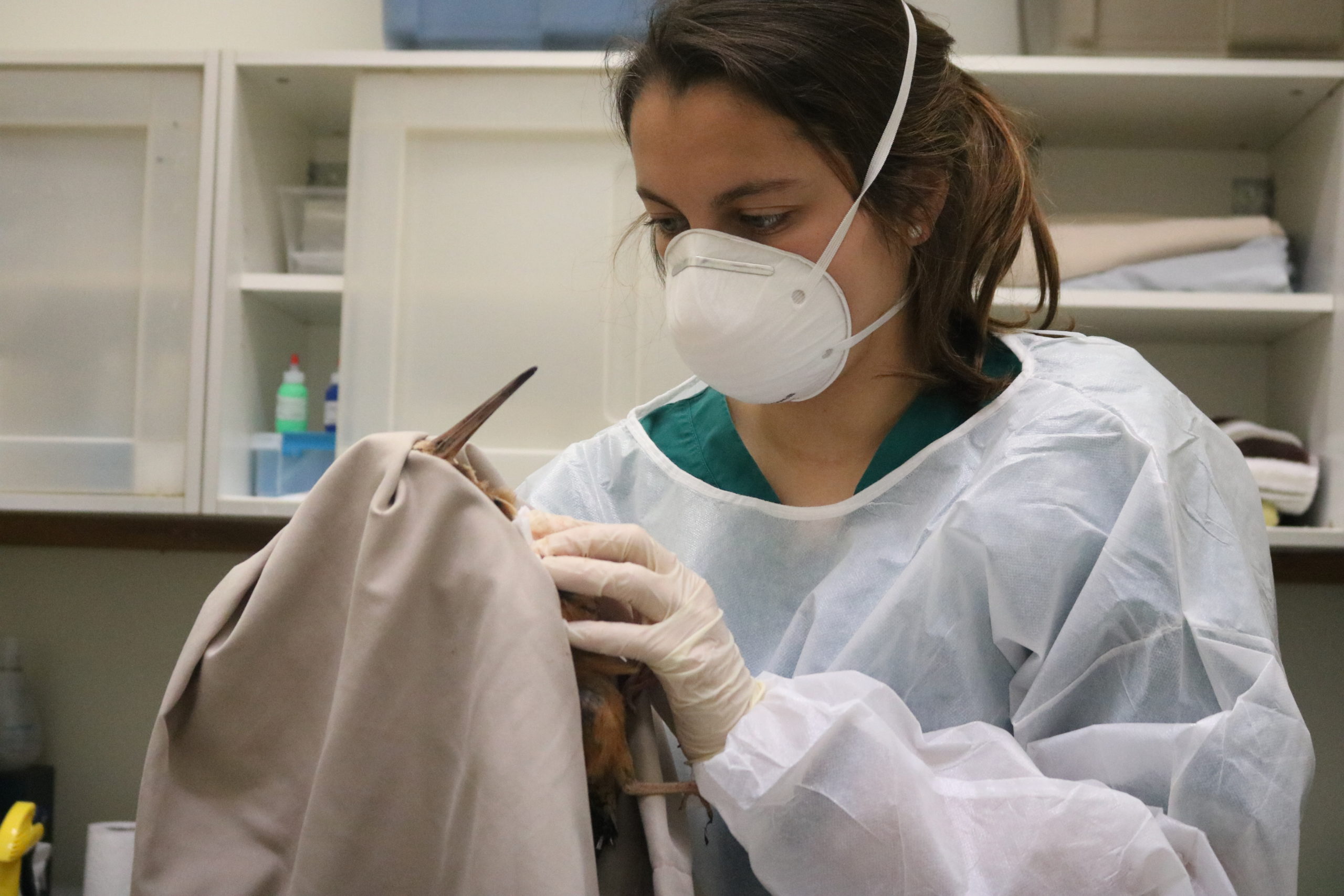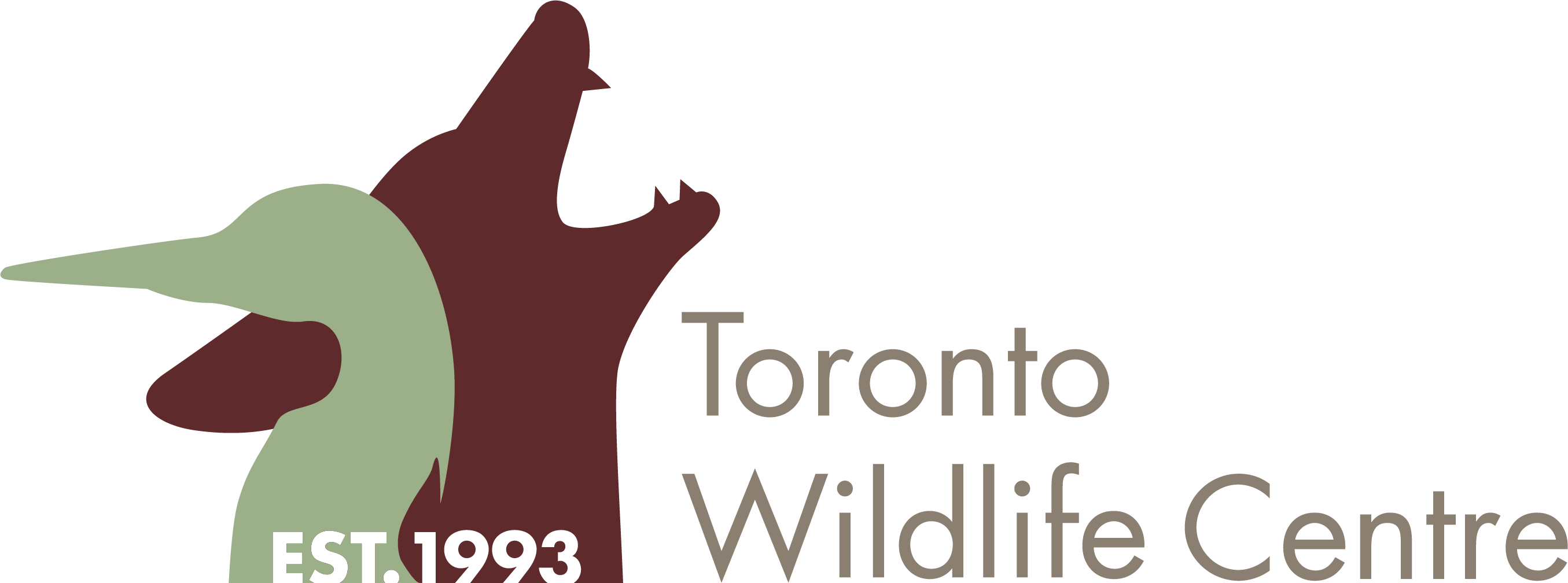The Highly Pathogenic Avian Influenza (HPAI), often called “bird flu”, is an extremely contagious and serious illness that impacts our feathered neighbours. While waterfowl can be asymptomatic carriers, symptoms can manifest in birds of prey (owls, hawks, falcons etc.), corvids (blue jays, crows, and ravens), shorebirds, game birds, and domestic flocks (poultry) – and can be deadly for them. Thankfully the risk in songbirds, pigeons and doves is quite low.
Since late last year, HPAI positive cases have been confirmed in both wild and domestic birds in southern Ontario and across the US. So far, we have confirmed two positive cases at TWC. Although it is considered a zoonotic disease, which means it can transfer both ways between animals and people, there has currently only been one positive human case (minor symptoms) in North America and the risk of contraction is very low. We are monitoring the situation and will adjust our protocols as necessary.
 To keep our animals safe, we have built an outdoor triage tent to assess high-risk bird patients, set up disinfectant foot baths and shoe scrubs at entrances, have dedicated teams caring for specific species groups to avoid spread, and are isolating potentially infected birds from patients already in our care. And of course, full personal protective equipment (PPE) will be worn at all times when in contact with these bird species.
To keep our animals safe, we have built an outdoor triage tent to assess high-risk bird patients, set up disinfectant foot baths and shoe scrubs at entrances, have dedicated teams caring for specific species groups to avoid spread, and are isolating potentially infected birds from patients already in our care. And of course, full personal protective equipment (PPE) will be worn at all times when in contact with these bird species.
Our teams have been working very hard to implement safety measures that will allow us to continue treating sick, injured and orphaned birds. Many additional resources have been needed, and we are asking for donations of equipment like additional PPE – if you’re able to, please visit our wish list to purchase what is needed most! Your support will help us to keep our doors open to these vulnerable species who may need us now more than ever.
We are grateful to those who offer support as we navigate the uncharted waters of HPAI during our busiest time of year.
If you find a bird who needs help:
If you come across birds you believe to be sick, please call our Wildlife Hotline at (416) 631-0662 and leave a message or fill out our online Request for Assistance Form. A member of our team will call you back to gather details, assess the situation, and provide next steps. If we are closed, please consider containing the bird and follow methods outlined on our website. Make sure to wear appropriate PPE, including a mask and gloves that can be laundered or thrown away after handling the bird. An extra layer to cover clothing (e.g. long-sleeved shirt, large black garbage bag) that can be laundered or thrown away afterwards is recommended when containing large birds that may come in contact with your body; minimize contact as much as possible.
If it is determined that the bird should be admitted to our centre, Hotline staff will provide details on procedures to follow upon arrival. Songbirds, pigeons and doves are considered low-risk species for transmission of HPAI and can be admitted through our front door, as normal. However, birds of prey (e.g. hawks, owls), corvids (e.g. blue jays, crows), and waterbirds (e.g. swans, ducks, geese, gulls, shorebirds) are considered higher risk species for transmission of HPAI. As such, please do not bring these birds inside the centre upon arrival. For avian species not mentioned here, Hotline staff will provide information on a case-by-case basis.
Instructions for arriving with a bird of prey, waterbird or corvid:
Birds from these species will first be examined in our outdoor triage tent to determine if they are exhibiting signs of HPAI. Upon arrival at TWC, please leave the bird in your car (parked in a cool space with windows down or with AC running) and come to our front desk where Hotline staff will complete an intake chart for the patient. Further instructions will be provided upon completion of the admission. Please be advised that we can only assess one bird at a time in our outdoor triage tent. You may be asked to wait with the bird you have found until space becomes available.

